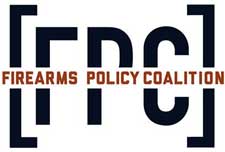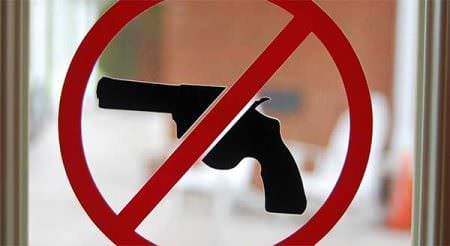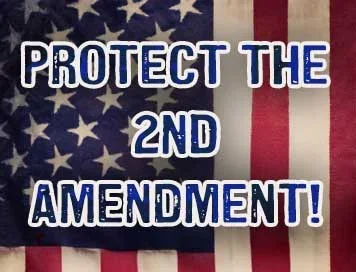
U.S.A. -(AmmoLand.com)- Yesterday, Firearms Policy Coalition (FPC) filed a motion for preliminary injunction in its federal Second Amendment lawsuit challenging Nevada’s unconstitutional statutes enacted in Assembly Bill 286, which established a new, confiscatory ban on all unserialized, self-manufactured firearms as well as all “unfinished frames or receivers.” The filings in Palmer v. Sisolak can be found at FPCLegal.org.
“Rather than enact tailored laws to address the State’s interests in reducing crime … or even addressing root causes of violent crime and social ills,” the motion for preliminary injunction opens, “Nevada instead enacted Assembly Bill 286,” what the plaintiffs go on to show to be “a radically expansive, confiscatory ban on constitutionally protected property and conduct that runs roughshod over the rights of its many thousands of law-abiding citizens who have only ever self-manufactured and used firearms for entirely lawful, indeed constitutionally protected purposes.”
“By all measures, Nevada’s Ban is an unconstitutional infringement of the fundamental rights guaranteed under the Second Amendment,” the brief argues. “The strength of Plaintiffs’ claims, the balance of the equities, and the public interest all weigh heavily in favor of granting preliminary injunctive relief against the significant, irreparable harm they have suffered and will continue to suffer on account of these blatant, unjustified constitutional injuries.”
Along with the request for a preliminary injunction, counsel for the plaintiffs also filed a motion “for Expedited Briefing Schedule and Determination,” which argues that fast-tracking the case “is necessary so this Court can determine the matter and issue an injunction with enough time to prevent enforcement of the challenged laws and the dispossession of Plaintiffs’ property, or, alternatively, should the Court deny Plaintiffs’ Motion for Preliminary Injunction, allow Plaintiffs sufficient time to seek relief from the Court of Appeals, and should it be necessary, seek relief from the Supreme Court.”
Last week, Nevada Governor Steve Sisolak signed AB 286 into law, which “radically expands the State of Nevada’s statutes to unconstitutionally and categorically ban, under pain of severe criminal sanctions, the possession, receipt, manufacturing, and sales” of Non-Firearm Objects (“NFOs”) the State classifies as “unfinished frames or receivers,” and further bans both the possession of previously self-manufactured firearms as well as, prospectively, any further self-manufacturing of firearms.
“Nevada’s broad ban on the possession and construction of constitutionally protected firearms and precursor materials violates Nevadans’ Second Amendment rights and unlawfully deprives them of their property, in violation of the Constitution,” said Adam Kraut, FPC’s Senior Director of Legal Operations. “In order for a law-abiding individual to exercise their Second Amendment rights, they must have the ability to possess firearms, including those they build themselves. As our complaint explains, the right to self-build one’s own arms has been enjoyed, and at times absolutely necessary, since the founding of our country. We will aggressively litigate this action and seek an injunction to prevent this law from depriving individuals of their rights and property.”
Individuals that are interested in joining FPC in the fight against tyranny can become a member of the FPC Grassroots Army for just $25 at JoinFPC.org.
Firearms Policy Coalition and its FPC Law team are the nation’s next-generation advocates leading the Second Amendment litigation and research space. Some FPC legal actions include:
- A challenge to California’s ban on so-called “assault weapons” (Miller v. Bonta) that resulted in a post-trial judgment and permanent injunction against the challenged regulations, the first such victory in United States history
- A brief supporting certiorari in NYSRPA v. Bruen, which was granted by the U.S. Supreme Court
- A challenge to Minnesota’s ban on handgun carry by adults under 21 (Worth v. Harrington)
- A challenge to Illinois’ ban on handgun carry by adults under 21 (Meyer v. Raoul)
- A challenge to Georgia’s ban on handgun carry by adults under 21 (Baughcum v. Jackson)
- A challenge to Tennessee’s ban on handgun carry by adults under 21 (Basset v. Slatery)
- A challenge to Maryland’s ban on handgun carry (Call v. Jones)
- A challenge to New Jersey’s ban on handgun carry (Bennett v. Davis)
- A challenge to New York City’s ban on handgun carry (Greco v. New York City)
- A challenge to Pennsylvania’s ban on handgun carry by adults under 21 (Lara v. Evanchick)
- A challenge to the federal ban on the sale of handguns and handgun ammunition to adults under 21 years of age (Reese v. BATFE)
- A challenge to Maryland’s ban on so-called “assault weapons” (Bianchi v. Frosh)
- A challenge to California’s handgun “roster”, microstamping, and self-manufacturing ban laws (Renna v. Bonta)
- A challenge to Pennsylvania’s laws completely denying the right to carry to individuals who were previously granted relief from prior non-violent convictions and are not currently prohibited from possessing firearms (Suarez v. Evanchick)
To follow these and other legal cases FPC is actively working on, visit the Legal Action section of FPC’s website or follow FPC on Instagram, Twitter, Facebook, YouTube.
About Firearms Policy Coalition
Firearms Policy Coalition (firearmspolicy.org) is a 501(c)4 nonprofit organization. FPC’s mission is to protect and defend constitutional rights—especially the right to keep and bear arms—advance individual liberty, and restore freedom through litigation and legal action, legislative and regulatory action, education, outreach, grassroots activism, other programs. FPC Law is the nation’s largest public interest legal team focused on the Second Amendment and adjacent fundamental rights including freedom of speech and due process, conducting litigation, research, scholarly publications, and amicus briefing, among other efforts.







Politicians with laws never stop bad guys with guns. They only control the good guys, which is their true agenda. Politicians do what they do because they don’;t fear the citizens. There are no consequences for politicians violating their oath of office, violating the Constitution/BoR, etc. They feel immune from their actions. Politicians view We The Little Peeps’ money as theirs to skim, scam, squander, buy votes with. Never having any fear of consequences. They do their dirty deeds, become rich, powerful, controlling and then retire without fear of repercussions for their dirty deeds. And to date, there have been… Read more »
Article 1, Sec. 11 of the Nevada State Constitution, “All citizens have the right to keep and bear arms…for lawful purposes”.
USC18, Sec. 242, “Deprivation of Rights Under Color of Law” provides for up to capital punishment for violation thereof.
needs to be penilities for government operatives that violate constitution like a rope and nearby tree that is what would stop this
This is about control and seizure, to complete their agenda of disarming the United States…
Article I, Section 10, Clause 1 of the Constitution. No State shall enter into any Treaty, Alliance, or Confederation; grant Letters of Marque and Reprisal; coin Money; emit Bills of Credit; make any Thing but gold and silver Coin a Tender in Payment of Debts; pass any Bill of Attainder, EX POST FACTO Law, or Law impairing the Obligation of Contracts, or grant any Title of Nobility. (Emphasis by me) Ex post facto law, law that retroactively makes criminal conduct that was not criminal when performed, increases the punishment for crimes already committed, or changes the rules of procedure in… Read more »